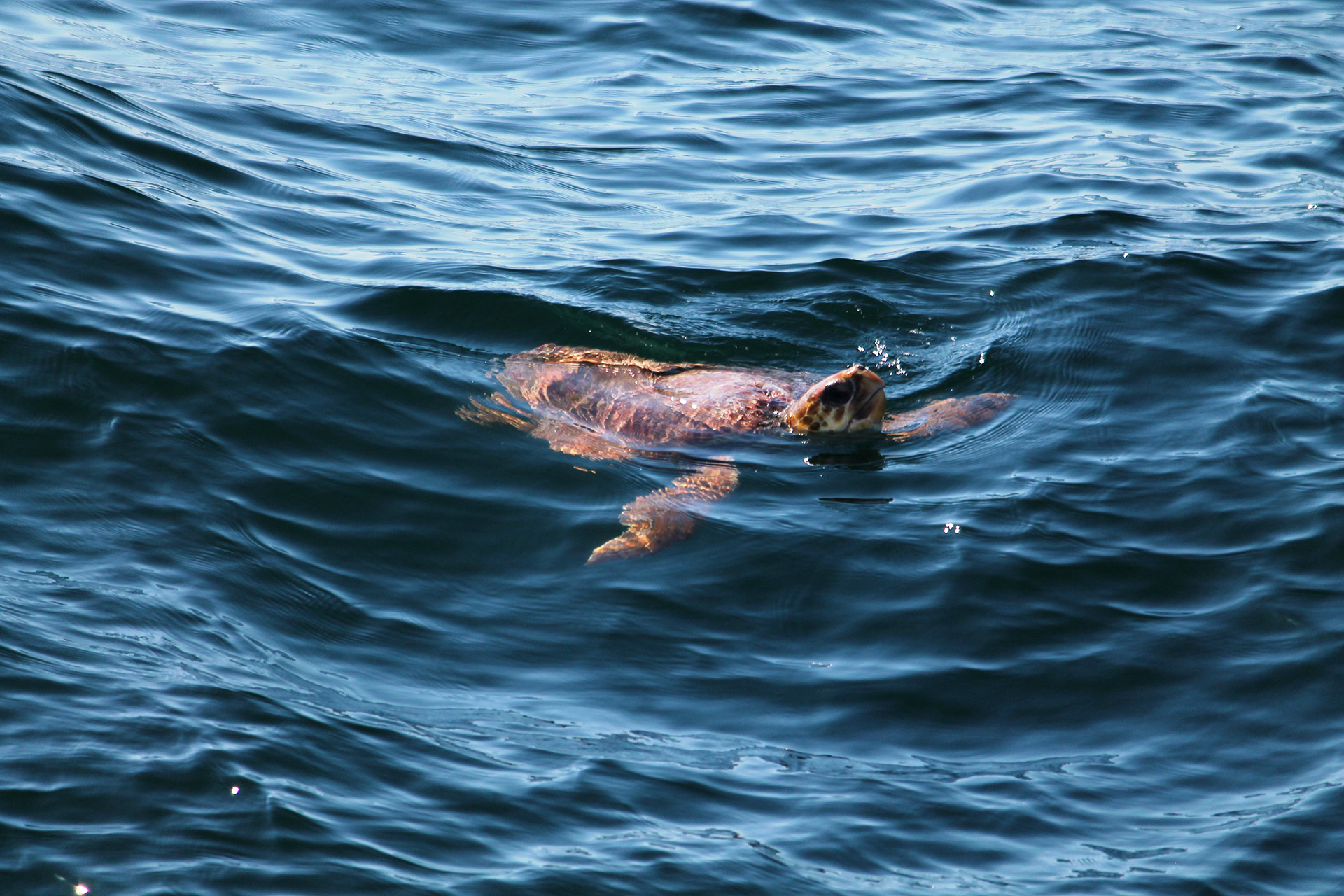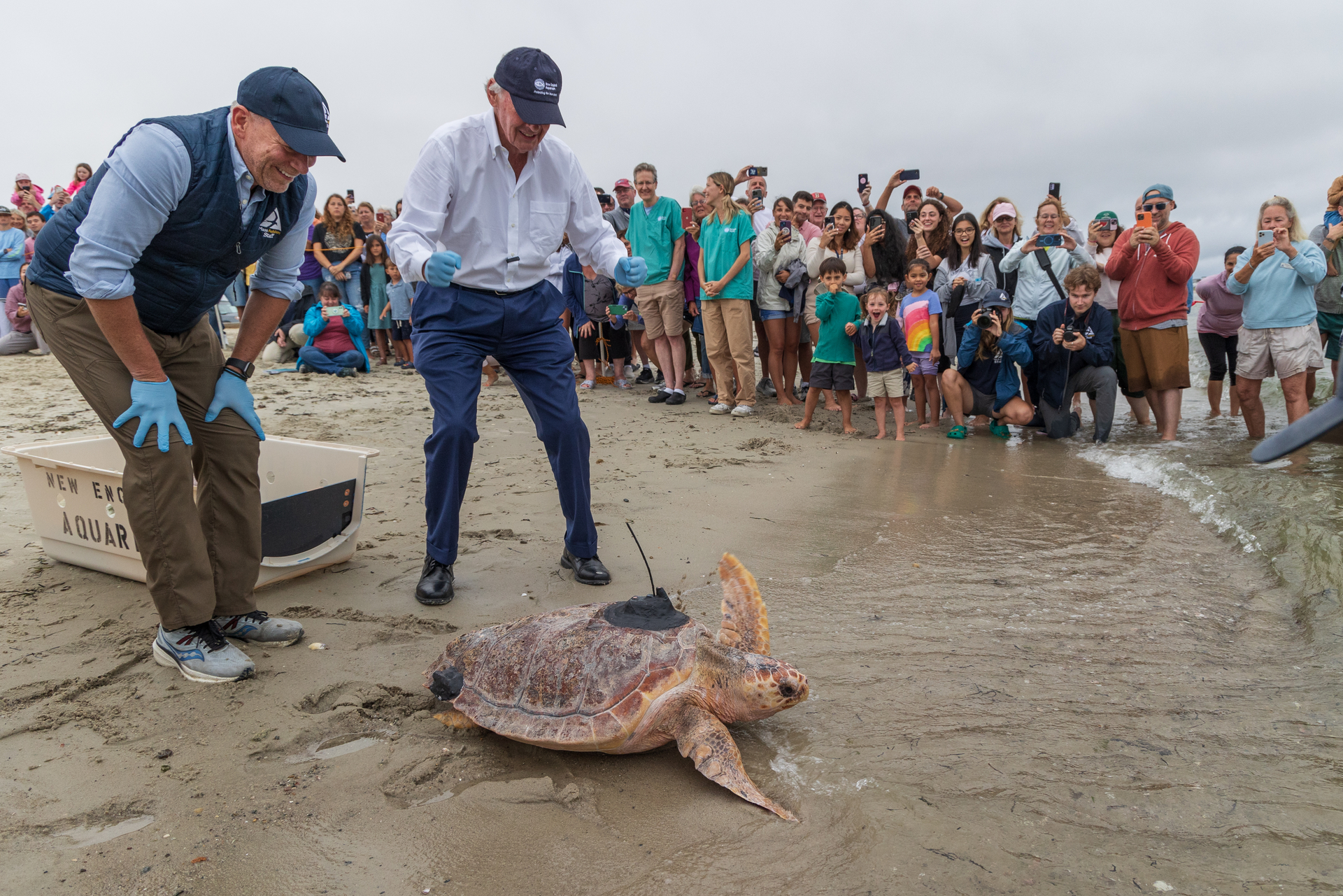Latest News
Five Sea Turtles Rescued by Mass Audubon and Rehabilitated by New England Aquarium Released Off Cape Cod
August 12, 2024
It begins and ends with people huddled over sea turtles on a Cape Cod beach, working hard and hoping for the best.
On August 6, sea turtle staff and volunteers from Mass Audubon joined the amazing and dedicated folks from New England Aquarium’s Sea Turtle Rescue and Rehabilitation team, along with U.S. Senator Edward J. Markey, at West Dennis Beach, to send five rehabilitated sea turtles back home to the sea. The five turtles—four Kemp’s ridleys and a 100-pound loggerhead—were celebrated by more than 100 spectators who cheered wildly as the endangered and threatened species happily flippered towards the familiar Atlantic Ocean following months of rehabilitation.
But this celebratory occasion is a far cry from the last time these sea turtles were surrounded by people on a Cape Cod beach.
These are five of more than 600 sea turtles that Mass Audubon staff and volunteers found stranded on local beaches in life-threatening conditions last fall. As reptiles, the internal body temperature of sea turtles is mostly regulated by the water around them. During the fall, as days get shorter and water temperatures plummet, many sea turtles become trapped by the hook shape of Cape Cod as they migrate south for warmer waters.
As the water continues to cool, turtles become very lethargic and hypothermic, in a condition called “cold-stunned.” They are unable to swim or eat and onshore winds wash them onto beaches, mostly along the shore of Cape Cod Bay. When this happens, saving their lives becomes a race against the clock.
Mass Audubon staff oversee a network of approximately 200 trained volunteers who walk the beaches at all hours—even in the middle of the night—guided by strict protocols and transporting them to rehabilitation facilities like New England Aquarium as soon as possible, as their only chance of survival.
From there, Aquarium staff spend several months treating the sea turtles for hypothermia-related conditions including pneumonia, dehydration, and emaciation—all of which is due to being caught in the cold waters off Cape Cod.
Sea turtles also face added obstacles such as interaction with boats, climate change, ocean pollution, and degradation of their habitats.
That’s why leaders like Markey and their efforts to advance bills like the Sea Turtle Rescue Assistance and Rehabilitation Act, which seeks to establish a new $30 million grant program at the Department of Commerce to fund institutions both locally and nationally to rescue, rehabilitate, and research stranded sea turtles, is so crucial.
The scene on August 6 included Markey, Mass Audubon President David O’Neill, and New England Aquarium President and CEO Vikki Spruill, who all personally released rehabilitated turtles back into the ocean. It was a reminder that locating cold-stunned turtles, rescuing them, transporting them, and nursing them back to health demands collaboration and cooperation between organizations to ensure the survival of these species.
There are still seven sea turtles remaining at the Aquarium’s rehab facility that will be released off Cape Cod once they are medically cleared. Those who want to follow the progress of previously released turtles can visit the Aquarium’s Sea Turtle Tracker website to chart their paths and follow their journeys.
Stay Connected
Don't miss a beat on all the ways you can get outdoors, celebrate nature, and get involved.




